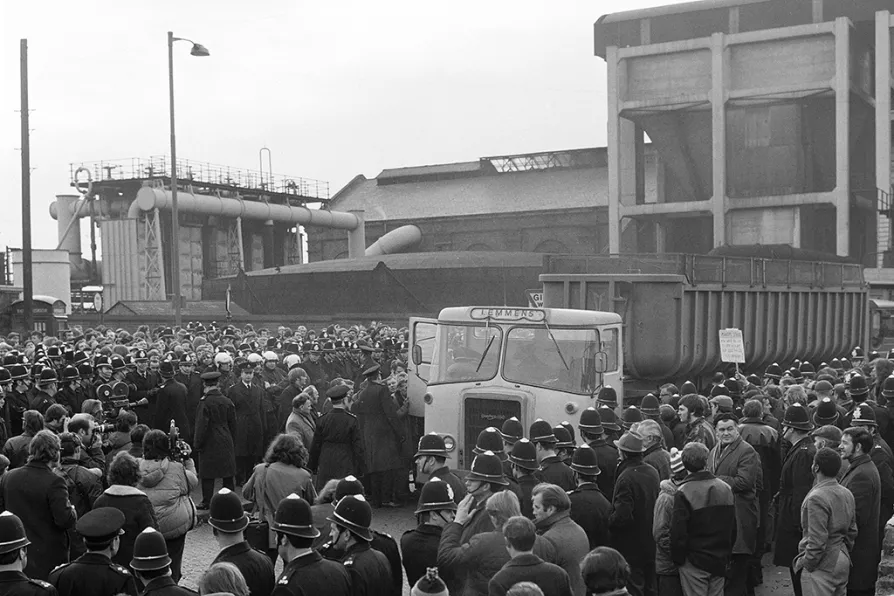RICHARD BURGON MP speaks to Ben Chacko about the Labour right’s complicity in the Mandelson scandal and the need for a total break with Starmerism if the party is to defeat Reform

 Pickets and police at Saltley Gate
Pickets and police at Saltley Gate
THE MINERS’ STRIKE of 1972 was the first time miners had staged a national stoppage since 1926. Its outcome has been labelled “the miners’ greatest victory.”
In 1971 the NUM submitted a pay claim of between £5 and £9 per week (dependent on grade) and the National Coal Board replied with an offer of £1.60 — which reflected the Tory government’s strategy of wage restraint. A national ballot of the miners voted for strike action which started on January 9, 1972.
It was to become an important landmark in working-class history. A key event of the dispute and the one which led to its victorious outcome was the Battle of Saltley Gate which occurred 50 years ago today.

Four decades on, the Wapping dispute stands as both a heroic act of resistance and a decisive moment in the long campaign to break trade union power. Lord JOHN HENDY KC looks back on the events of 1986

This ‘Big Meet’ our focus is building the next ‘Megapicket,’ say HENRY FOWLER and GAWAIN LITTLE of the General Federation of Trade Unions

Hundreds travel to Birmingham to join ‘mega picket’ of striking refuse workers and supporters
![Strike Map activists visit striking refuse workers in Birmingham, April 29, 2025 [Pic: Strike Map]]( https://msd11.gn.apc.org/sites/default/files/styles/low_resolution/public/2025-05/DSC_0753.JPG.webp?itok=UCYB6Qpj)
As Birmingham’s refuse workers fight brutal pay cuts, Strike Map rallies mass solidarity, with unions, activists, and workers converging to defy scab labour and police intimidation. The message to Labour? Back workers or face rebellion, writes HENRY FOWLER and ROBERT POOLE










